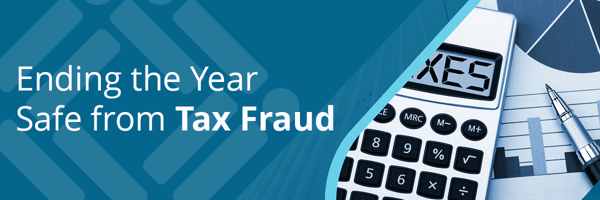The Criminal Investigation (CI) unit is a special criminal division of the IRS. The CI is tasked...
Beware Stimulus and Tax Scams

It’s stimulus season and tax season at once, and scammers couldn’t be happier. They know that taxpayers are eager to get their hands on their stimulus payments and tax refunds. As consumers are working to file their taxes before the May 17 deadline, all that paperwork and payments mean people may be letting their guard down. For a scammer, nothing could be better!
The IRS is warning of a surge in scams as the tax agency continues processing tax returns and distributing stimulus payments to eligible adults who have not yet received them. Here’s all you need to know about the latest round of stimulus and tax scams:
How the scams play outIn the most recent IRS-related scams, scammers will con victims into filing phony tax returns, steal tax refunds or stimulus payments or impersonate the IRS to get victims to sign documents or share personal information, such as Social Security numbers or checking account numbers. The scams are pulled off via email, text message or phone. Sometimes, victims will be directed to another (bogus) website where their device will be infected with malware. Other times, the victim receives a 1099-G tax form for unemployment benefits they never claimed or received, because someone has filed for unemployment under their name. Unfortunately, the losses incurred through most of these scams can be difficult or impossible to recover.
What you need to know
As always, information is your best protection against these scams. Here’s what you need to know about the IRS, the stimulus payments and tax returns:
The IRS will never initiate contact by phone or email. If there is an issue with your taxes or stimulus payment, the agency will first communicate via mail.
There is no “processing fee” you need to pay before you can receive your stimulus payment or tax refund.
The IRS is not sending out text messages about the stimulus payments. If you receive a text message claiming you have a pending stimulus payment, it’s from a scammer.
There is no need to take any action to receive your stimulus payment. Likewise, aside from filing your tax return, there is nothing additional you need to do to receive your tax refund.
If you’ve been targeted
If you receive a suspicious phone call, text message or email that has allegedly been sent by the IRS, do not engage with the scammer. Block the number on your phone and mark the email as spam.
If you are a victim
If you are the victim of identity theft related to taxes or stimulus payments, there are steps you can take to mitigate the loss.
If you received a 1099-G for unemployment benefits you’ve never filed for or received, it’s best not to ignore it. Contact your state’s unemployment office to report the fraud. It should be able to send you a corrected 1099-G showing you did not get any benefits.
First, report the scam to the correct authorities. If a fraudulent tax return was filed in your name, the IRS will mail you a Letter 4883C or 6330C to verify your identity. You may also need to call the toll-free number provided on the letter and visit an IRS Taxpayer Assistance Center. After reporting the fraud, you’ll likely need to file a paper tax return. Complete an Identity Theft Affidavit (Form 14039) and attach it to the back of your paper return.
If you’ve mistakenly shared your information with a scammer and they’ve stolen your stimulus check, you will likewise need to let the IRS know. Visit Identitytheft.gov where you will receive a personal recovery plan that will hopefully minimize the damage done by the scammer and help you reclaim your lost funds.
It’s tax season and stimulus season, so it’s also scam season! Keep your guard up and follow the tips outlined here to prevent yourself from falling victim to one of the many circulating scams. Stay safe!
P.S. We are here for you! Following the IRS's advice in each instance is important but also know that we are here for you! While it's important that you are aware of the above tax-related risks and practice good habits to protect your identity, we want you to remember that Mutual Security Credit Union has you covered in the event of tax-related or any type of identity theft. If you are an account holder with Enhanced or Elevated Checking you have Fully Managed Identity Theft Recovery. Should you feel your identity has been compromised, we have professional Identity Theft Recovery Advocates standing by. These Advocates work on your behalf to help recover and to help you reverse any damage caused by identity theft. Contact us or find out more about this and other benefits of Enhanced or Elevated Checking on our website.

%20(3)-1.jpg?height=200&name=BLOG%20PHOTOS%20(900%20%C3%97%20300%20px)%20(3)-1.jpg)

